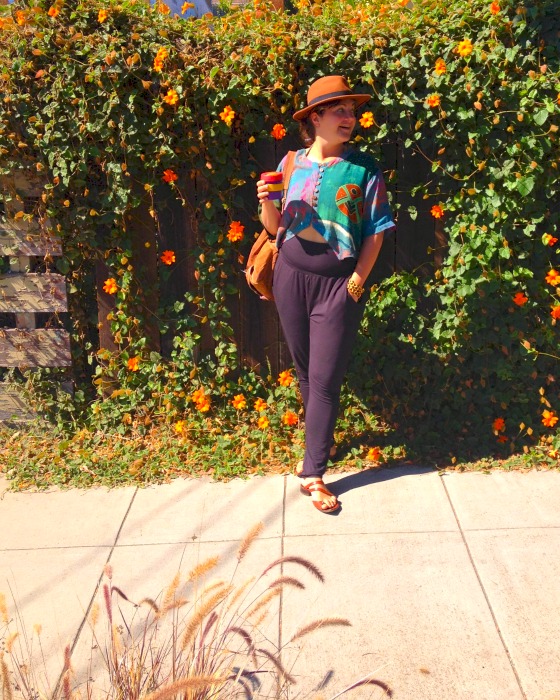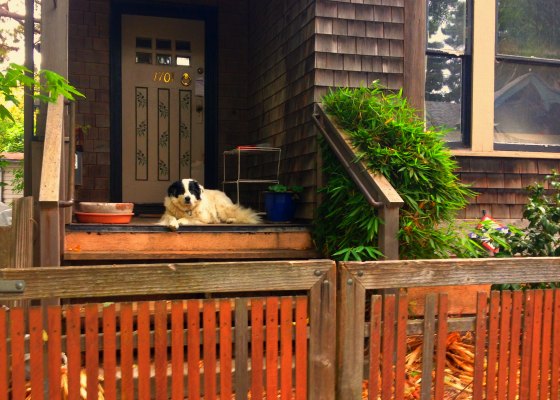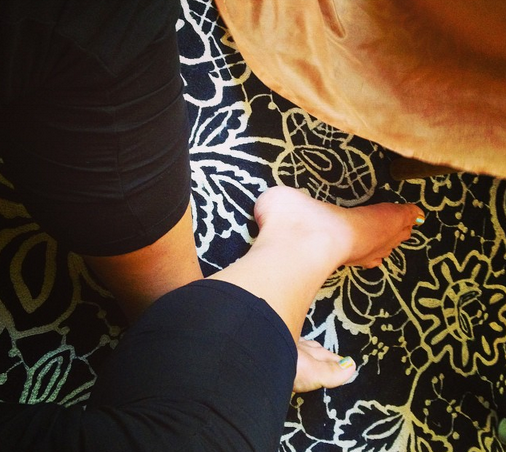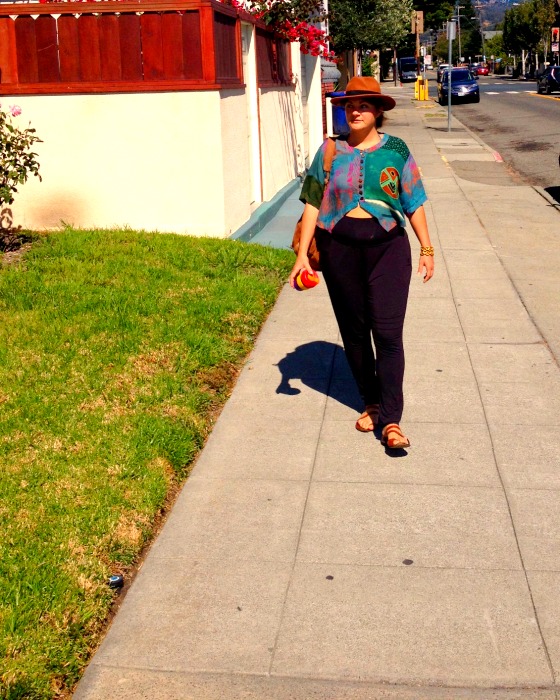
California Natural with Nau’s Micromodal Pants: How I Wear Eco Fashion
I’ve just moved to Berkeley, California to accompany my partner, Simon, while he attends law school here, and I am having some serious fun exploring my new town. Recently, we checked out some of the incredible vintage and salvage stores in the area to find interesting pieces for our new apartment, which is in a 1930s-era home that’s been divided into residences.
And we had so much fun checking out everyone’s gardens (and admiring all the adorable dogs and cats (and birds) in people’s yards! This guy was just too cute not to capture.
Because we’d be walking lots (maybe) hauling something home, and getting lunch too, I put together the perfect thrifting-to-lunch outfit for funky Berkeley: A vintage 80s top from Etsy seller Black Sheep, micromodal Pantalons from Nau, handmade, vegetable-tanned Cydwoq sandals, and a vintage suede backpack (oh, and my awesome reusable XX for soy cappucinos, of course).
I’m slightly obsessed with these pants, which I have worn with just a sports bra for a yoga class, paired with a flowy tunic and heels for dinner out, and this outfit—all in just one week. I love that the waistband can be folded over if you want to wear the pants higher up, or, like I do, slouch the pants harem-style, and bring the waistband up to cover your tummy.
And of course, you can pull the pants up to make them even more harem-y and keep your legs cool (I’ll be pulling them up for bikeriding).
What is Micromodal (besides insanely soft?) According to Nau’s website (they have a bunch of items in the dreamy fabric):
Often called the world’s softest fiber, MicroModal® is, hands down, one of our favorite renewable fibers. Made from sustainably grown and harvested European beech wood trees, this fine cellulosic fiber has the softness of silk and the breathability of cotton. Compared to Modal®, MicroModal® uses a finer fiber that’s lighter weight and even softer to the touch which creates a luxurious knit fabric. Better yet, the eco-friendly fabric is produced using a meticulous closed-loop process which conserves energy and creates valuable byproducts along the way, such as acetic acid used in food, xylose used in sweeteners, and sodium sulphate used in glass production.
Want more Nau? Check out our coverage of their men’s stuff in our Guy’s Eco Fashion Guide, and in Sustainable Outer Layers for Transitional Temps stories.









